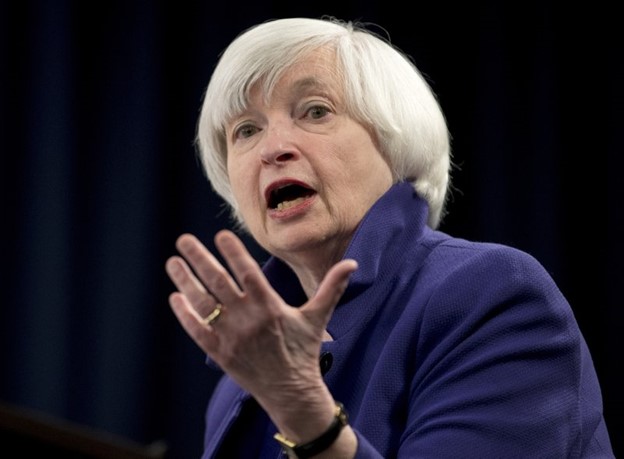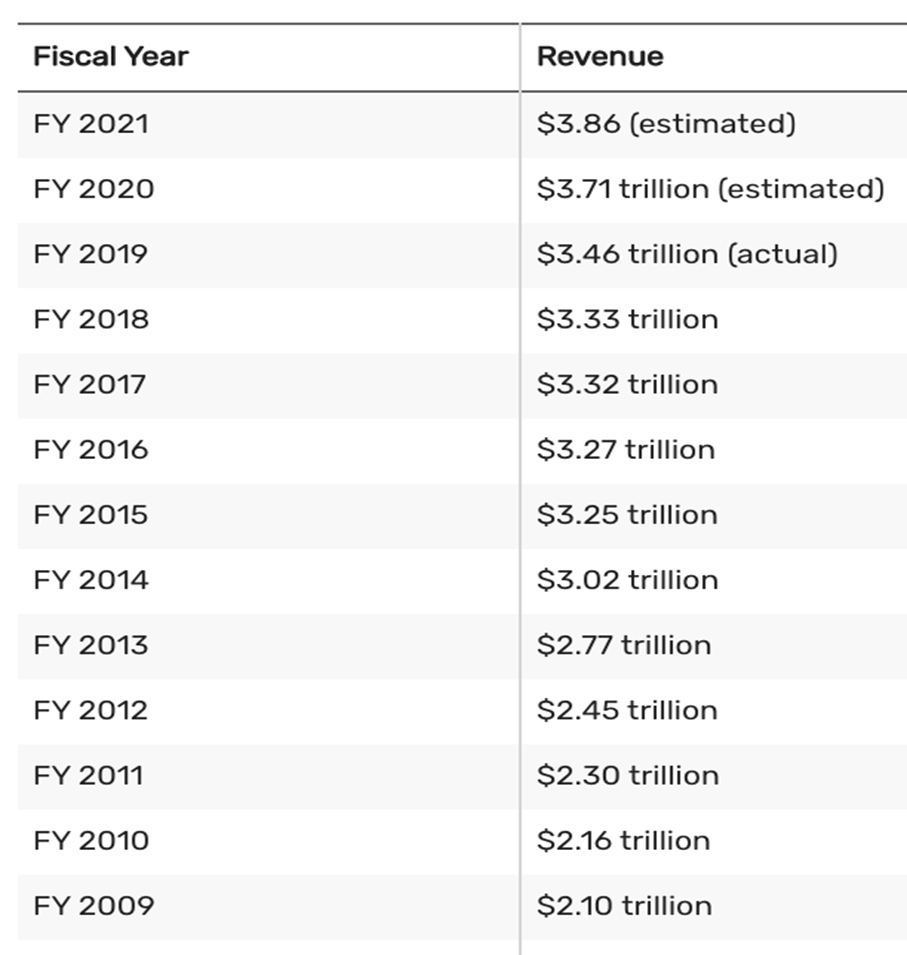
One of the great challenges of studying finance and economics is to recognize they can get intertwined with the field of politics and governance of the nation state. Since governments need money to operate one of the most controversial issues is that of taxation. Citizens strive to pay as little tax as possible while government authorities put forth measures to impose as high taxes as possible to pay for the affairs of the state. This is one of the ongoing tug of wars of economics and just a few days ago it displayed a fierce agenda when Secretary of the Treasury, Janet Yellen, shared her thoughts on imposing a minimum corporate tax for all corporations.
Before I elaborate on her comments let’s look at some recent history and the problems she is trying to solve. In 2017, the Trump administration passed a new tax law lowering the corporate tax to 21% in what they claimed was an attempt to make America more competitive in the global marketplace and with the hopes of repatriating funds that are parked overseas in lower tax jurisdictions. Over the past 16 months, because of the pandemic and economic lockdown, the government has spent trillions of dollars to try and support the economy. The bill for all this new spending is now confronting our governmental leaders and they are looking at ways to raise as much money as possible to minimize the massive deficit spending which has occurred.
The US government has been collecting more tax revenue every year since 2009. Yet, they continue to widen the deficit gap. The chart below highlights what revenue collection has looked like since the great financial crisis.

U.S. Treasury Secretary Janet Yellen on Monday urged the adoption of a minimum international global corporate income tax of 28% to prevent corporations from being able to avoid taxation. What makes Yellen’s speech and proposal so troubling is that it is cushioned in well intentioned ideas of lowering the deficit, but it wreaks of capital controls which is something governments often engage in to prevent a further worsening of their current financial condition.
Capital controls are government measures to attempt to limit the flow of financial capital and financial assets to outside its borders. Capital controls include limits on foreign currency exchange, limits on the purchase of assets and taxes on financial transfers. Traditionally, economists are critical of capital controls arguing it prevents capital from moving to the most efficient location where it is treated best and can earn the safest and highest yield.
Historically, whenever governments raise taxes, capital has a tendency to flee that specific geographical boundary. Raise the taxes too high and people leave to find a more tax advantaged geography. Whenever governments lower taxes, people and companies are attracted to come to your geography. These basic incentives run the world, and taxes are some of the greatest incentive mechanisms that governments possess.
Several months ago, the New York Stock Exchange threatened to leave Wall Street because of proposed tax increases in the State of New York. It was rumored the states of Florida and Texas were courting the New York Stock Exchange to setup shop in a more tax advantaged location. It’s possible that one day, the BIG Board of the New York Stock Exchange will no longer reside in New York City!
Treasury Secretary knows very well that this is how the system works. She is a scholar and government bureaucrat. She is opting to short circuit the free market system and prevent capital from fleeing the United States. She is hoping to cobble together enough support from major countries to create a minimum corporate tax rate. If she is successful, no country would be able to offer a lower corporate tax rate below that minimum. Think about that!
- Are you aware that countries like Ireland have blossomed in the last quarter century specifically because they offer a corporate tax rate of only 12.5%?
- The worldwide average statutory corporate income tax rate, measured across 177 jurisdictions, is 23.85 percent. When weighted by GDP, the average statutory rate is 25.85 percent.
- Europe has the lowest regional average rate, at 19.99 percent (24.61 percent when weighted by GDP). Conversely, Africa has the highest regional average statutory rate, at 28.50 percent (28.16 percent weighted by GDP).
Ten countries charge a 0% corporate tax:
- Anguilla
- Bahamas
- Bahrain
- Bermuda
- Cayman Islands
- Guernsey
- Isle of Man
- Jersey
- Turks and Caicos Islands
- Vanuatu
Low Corporate Tax Rates
In addition to the mostly Caribbean countries with no corporate taxes, many countries in Eastern Europe have lower than average corporate tax rates, including:
- Hungary 9%
- Montenegro 9%
- Andorra 10%
- Bosnia and Herzegovina 10%
- Bulgaria 10%
- Gibraltar 10%
- Macedonia 10%
- Moldova 12%
- Cyprus 12.5%
- Ireland 12.5%
- Liechtenstein 12.5%
- Albania 15%
What Makes Secretary Yellen’s idea such a questionable idea is that it clearly demonstrates the United States is no longer interested in free markets and promoting value through competition, instead it may be fixated on coercion and collusion with other governments. What I find so confusing about this, is there is established precedent which demonstrates that when companies collude with one another and fix prices that this behavior is deemed unlawful. Numerous anti-trust cases exist where the courts have decided that price fixing on the part of companies destroys freedom. Price fixing disrupts the normal laws of demand and supply. It gives monopolies an edge over competitors. It’s not in the best interest of consumers. They impose higher prices on customers, reduce incentives to innovate, and raise barriers to entry.
Yet somehow Secretary Yellen proposes that when governments collude with one another to reduce freedom and choice amongst their citizens that this is good policy?
Janet Yellen believes that she should now be able to tell other countries what taxes should be charged to the corporations within their geographical boundaries. Why? Because the United States understands that the friction to moving a business, or moving your revenue offshore, is quickly accelerating. In a world focused on digitization, a few keystrokes, in the cloud, and a business can move from one country to another.
Her proposal of creating an international minimum corporate tax rate is like the CEO of a hotel chain colluding with other hotels and legislators and passing a law where it would be unlawful to rent a hotel room out for less than $250 a night! Clearly, we can all agree this would be a very bad idea. Why should we think that nation states colluding to fix the price companies have to pay, would have any semblance of positive attributes? Harmful, impractical, and authoritarian ideas of the expert class can often infiltrate the government’s regulatory machine.
Remote work quickly became a reality for almost all employees in 2020. Frictionless movement between geographic jurisdictions has created a global competition among governments for citizens and corporations. Historically, whichever government provided the best product (taxes, infrastructure, etc.) would win the customers (corporations). But it feels like Treasury Secretary Yellen might believe in monopolistic power. She is proposing that governments collude with each other against citizens and corporations. That is not how free societies operate. The rules are rigged so that free markets can’t operate by punishing bad rule making.
The issue is not about raising taxes in this regard. The issue is about locking citizens and corporations into specific tax rate regardless where they live or how they choose to operate.
Governments always have the ability and the right to raise taxes. But should they, they should also face the consequences of citizens voting with their wallets when they choose another jurisdiction. The new administration was elected by the people. They have every right to increase or decrease taxes as they see fit. Likewise, the citizens also have a right to leave a country if you raise taxes too high or international citizens have the right to immigrate if they can find a tax environment which is more attractive. This is how incentives work. This is how the wheels of financial history have operated.
I can completely understand how the government must raise dollars to pay for the affairs of the State. However, governments should be held to the same competitive standards which determine whether or not an idea is valuable. Until recently, choice and freedom have been the hallmarks of the American economy. We should not permit freedom to be sacrificed in the hopes of creating a better solution. The debate has raged for hundreds of years as to what the shape and form of taxes should be. It will continue to do so. As we go deeper into an economy that is digitized these questions will need to be clarified. Who does the money belong to? The state? The corporations? The investors? The citizens?
Taxes are never fun. But they are necessary. As publicly traded companies go about their businesses, they are having to confront this issue. In doing so, it will determine how they choose to operate within the geographical boundaries of the United States. It will also determine how successful they are in the marketplace, and that will determine their stock price.
As an investor and trader, how do you go about making sense of it all? Taxation of companies and how nations collect taxes will be the largest component in determining valuation of stocks, bonds and even currencies. As a trader the most important question on your mind is “How do I protect the purchasing power of my portfolio?”.
Finding value is becoming a completely consuming activity on the part of traders and investors. The target moves quickly based upon too many factors that remain unseen to the naked eye.
It’s all about finding the best trends at the right time.
Most traders have problems with timing of their trades.
If you want to win, it’s all about who has the best tools. Artificial intelligence excels at keeping traders on the right side of the right trend at the right time.
Let me be totally candid here:
- The market is brutally honest – there are winners and losers.
- It’s very black and white.
- If you need a friend, get a dog.
- If you are going to win, someone else has to lose.
- If survival of the fittest makes you uneasy, stay out of this game.
We live in very exciting times.
Since artificial intelligence has beaten humans in Poker, Chess, Jeopardy and Go!, do you really think trading is any different?
How do you think your investment portfolio compares when pitted against artificial intelligence?
Are you capable of finding those markets with the best risk/reward ratios out of the thousands of trading opportunities that exist?
Knowledge. Useful knowledge. And its application is what A.I. delivers.
You should find out. Join us for a FREE, Live Training. We’ll show you at least three stocks that have been identified by the A.I. that are poised for big movement… and remember, movement of any kind is an opportunity for profits!
Fair warning though — our LIVE online trainings are so popular we usually fill them within hours of making them available.
Discover why artificial intelligence is the solution professional traders go-to for less risk, more rewards, and guaranteed peace of mind.
Visit With US and check out the A.I. at our Next Live Training.
It’s not magic. It’s machine learning.
Make it count.
IMPORTANT NOTICE!
THERE IS SUBSTANTIAL RISK OF LOSS ASSOCIATED WITH TRADING. ONLY RISK CAPITAL SHOULD BE USED TO TRADE. TRADING STOCKS, FUTURES, OPTIONS, FOREX, AND ETFs IS NOT SUITABLE FOR EVERYONE.
DISCLAIMER: STOCKS, FUTURES, OPTIONS, ETFs AND CURRENCY TRADING ALL HAVE LARGE POTENTIAL REWARDS, BUT THEY ALSO HAVE LARGE POTENTIAL RISK. YOU MUST BE AWARE OF THE RISKS AND BE WILLING TO ACCEPT THEM IN ORDER TO INVEST IN THESE MARKETS. DON’T TRADE WITH MONEY YOU CAN’T AFFORD TO LOSE. THIS ARTICLE AND WEBSITE IS NEITHER A SOLICITATION NOR AN OFFER TO BUY/SELL FUTURES, OPTIONS, STOCKS, OR CURRENCIES. NO REPRESENTATION IS BEING MADE THAT ANY ACCOUNT WILL OR IS LIKELY TO ACHIEVE PROFITS OR LOSSES SIMILAR TO THOSE DISCUSSED ON THIS ARTICLE OR WEBSITE. THE PAST PERFORMANCE OF ANY TRADING SYSTEM OR METHODOLOGY IS NOT NECESSARILY INDICATIVE OF FUTURE RESULTS. CFTC RULE 4.41 – HYPOTHETICAL OR SIMULATED PERFORMANCE RESULTS HAVE CERTAIN LIMITATIONS. UNLIKE AN ACTUAL PERFORMANCE RECORD, SIMULATED RESULTS DO NOT REPRESENT ACTUAL TRADING. ALSO, SINCE THE TRADES HAVE NOT BEEN EXECUTED, THE RESULTS MAY HAVE UNDER-OR-OVER COMPENSATED FOR THE IMPACT, IF ANY, OF CERTAIN MARKET FACTORS, SUCH AS LACK OF LIQUIDITY. SIMULATED TRADING PROGRAMS IN GENERAL ARE ALSO SUBJECT TO THE FACT THAT THEY ARE DESIGNED WITH THE BENEFIT OF HINDSIGHT. NO REPRESENTATION IS BEING MADE THAT ANY ACCOUNT WILL OR IS LIKELY TO ACHIEVE PROFIT OR LOSSES SIMILAR TO THOSE SHOWN.




